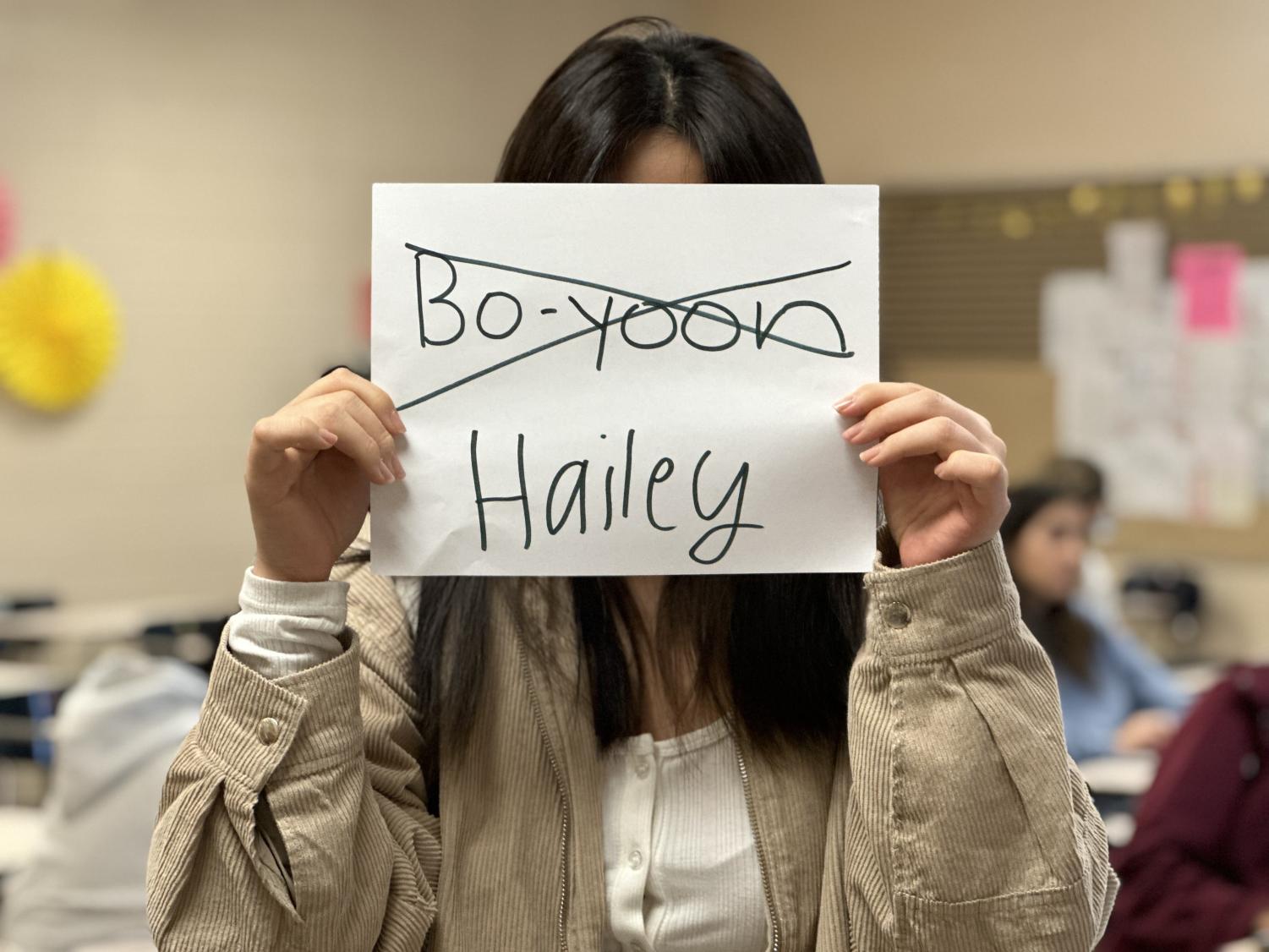We Don’t Need Your Westernized Names
February 9, 2023
I dread the days my real teachers aren’t in class.
When they don’t show up, that means we have a substitute teacher. And having a substitute teacher means the following question: “Is it Car-mul or Caramel?” Hearing those very words makes my heart race and palms sweat even more than usual.
I want to have the courage to stand up and say, “No, you’re pronouncing my name wrong. It’s supposed to be Car-mel, not Car-mul or Caramel.”
But then, the room gets quiet and the only voices I hear are the ones inside my head, telling me to let it go and move on. So, out of nervousness and anxiety, my response is simply, “Yes, I’m here.”
Immediately after, I feel this inexplicable pang of regret. Why couldn’t I speak up? It’s a question I find myself pondering everyday. Yet, before I hear my name, I’m already aware of the impending question and brace myself to counter with a spiteful tone. But when the time arrives, I never follow through.
Fortunately, I am not the only student to have these invading thoughts. There are millions of other students from a variety of backgrounds that undergo similar experiences.
Likewise, the first day of school is always the worst for students like me. We accept the fact that teachers will butcher our names, and more times than not, they’ll go on to ignore the true pronunciations.
It’s evident when a teacher finds my name on the attendance list; I can tell from their confused facial reactions. It’s also obvious when their eyes reach a Non-Americanized name because of the classic phrase, “This is a hard one.”
From the outside, the phrase may seem lighthearted and innocuous. But, to the students that hear those very words every year, it’s a never-ending cycle of frustration and underrepresentation.
In schools all across the country, many different communities experience this cycle. Unfortunately, the Korean community is all too familiar with it.
“My original name is in Korean but since I was a little girl, I’ve decided to go by a name in English so it would be easier for others to understand,” said an anonymous South Forsyth student.
Unsurprisingly, their Korean friends fall into the same boat.
Their decision to adopt Anglo (English) names is not to blame. They are simply doing what they feel is necessary to avoid any cultural tension. As devastating as it is, this is the reality for nonwhite communities in schools across the country.
Teachers are a part of the school system, and their role as authoritative figures go beyond academics. They play a major part in the identity of students and, whether they realize it or not, they deeply affect how students choose to identify themselves.
“It’s understandable that teachers aren’t aware of how to pronounce ethnic names properly at first,” said an anonymous student. “It’s when they intentionally pronounce the names without putting any effort [into pronouncing it correctly] that makes us feel unimportant.”
Schools are just one of the many aspects of life where this topic gets brought to light. The issue continues to affect students beyond school and into their adult lives as well.
According to the Harvard Business Review, “…research suggests that more than half of Black and Asian job applicants in the U.S. whitened their resumes to avoid any racial cues. Those who did were twice as likely to get callbacks for job interviews.”
In conclusion, when applying for a job, the majority of Black and Asian applicants apply under different names in order to increase their chances of receiving a job.
Not only does the research expose this reality for the majority of Black and Asian Americans in the United States, but it also highlights the lack of equality. The truth is, if such communities apply for jobs using their real identities, they are less likely to receive acceptance.
As a result of these inequalities and the persistence of ignorance, students and adults can go on to struggle with their emotional health. Altering a student’s ethnic name, or mispronouncing it, is beyond disrespectful to the individual and culture, and it can also hurt them on a psychological level.
At the end of the day, instead of assimilating non-American names into American culture, why not celebrate the students and communities that make our schools diverse?
Nevertheless, it’s up to the rest of society to respect cultural differences, not only from an academic standpoint, but in their daily interactions as well.
It’s an inevitable fact that my name, along with many other unique names, will be misspelled, mispronounced, and misunderstood in the future.
And to this day, I still wrestle with the courage to correct teachers and others outside of school.
When I introduce myself to new people, the majority say my name wrong on the first try. During fancy banquets or tense interviews, they mispronounce my first and last name in front of the crowd. And, even after explaining how to properly say my full name, most dismiss my efforts.
But despite the rollercoaster of experiences, I, along with all many others, refuse to relinquish our identities, our cultures, and how we want to be addressed in the world.
